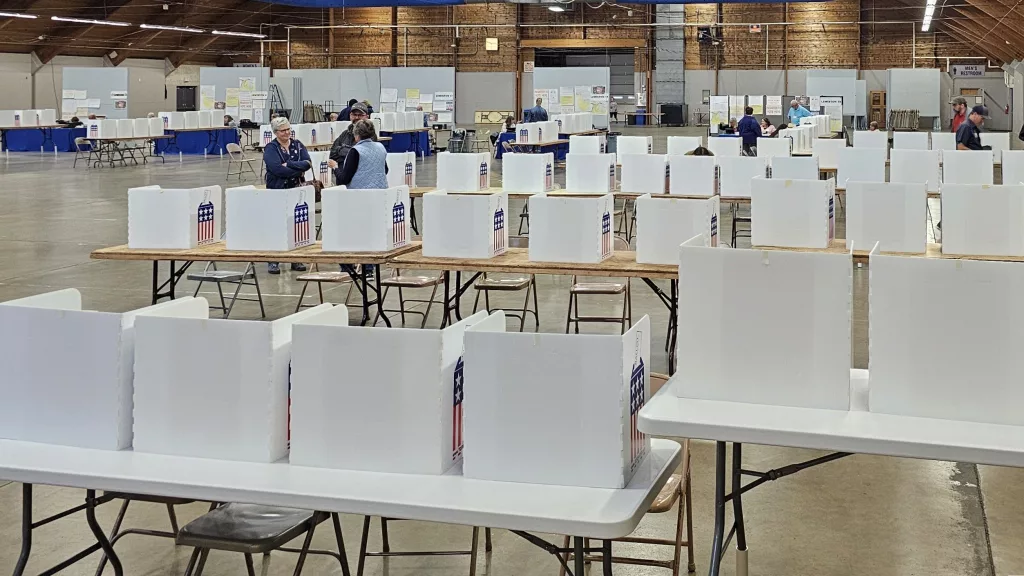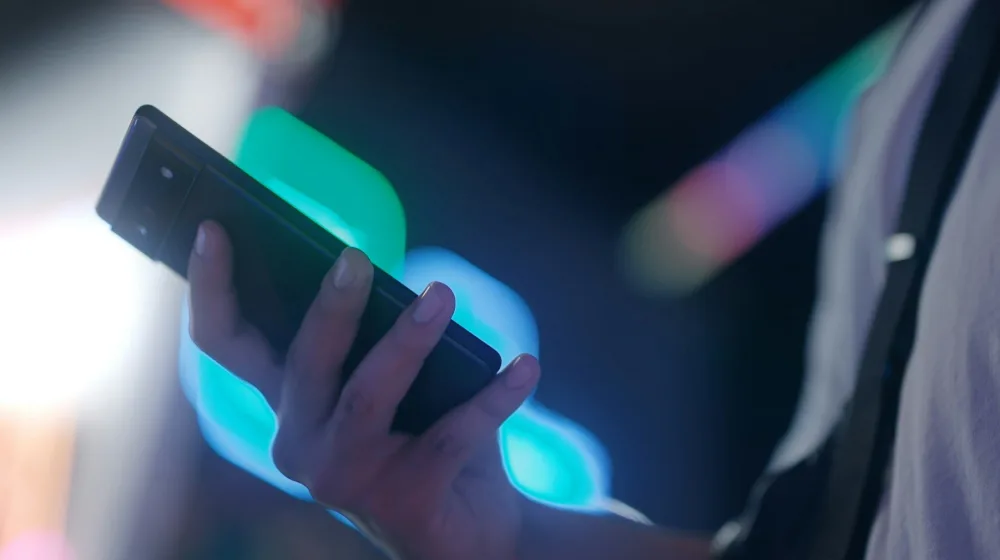SEATTLE, WA – A federal appeals court will consider whether Idaho’s recent voting laws unconstitutionally target voters based on age.
A three-judge panel heard oral arguments Wednesday in the U.S. Ninth Circuit Court of Appeals courtroom in Seattle in a challenge led by the youth advocacy organization March For Our Lives Idaho.
The organization, along with the Idaho Alliance for Retired Americans, sued Idaho Secretary of State Phil McGrane over House Bill 124 and House Bill 340 — legislation that passed in 2023 eliminating student identification as a valid form of ID for voter registration and at the polls. House Bill 340 created a new list of acceptable ways to prove identity and residency to register to vote and allowed the Idaho Department of Motor Vehicles to issue a no-cost voter photo ID.
Attorney David Fox, arguing on behalf of March For Our Lives Idaho on Wednesday, said that laws were a “targeted strike on young voters.”
He said the laws violate the 26th Amendment of the Constitution, which states that U.S. citizens who are 18 years or older cannot have their right to vote denied or abridged on the basis of age.
Idaho Deputy Solicitor General Michael Zarian countered that the state is allowed to create reasonable restrictions on voting to ensure security, and that the laws in question “don’t place a special burden on anyone.”
“Any student who would have used a student ID before is now simply in line with the rest of the electorate who has always had to go to the DMV and obtain a compliant identification,” Zarian said.
March For Our Lives says bills were meant to discriminate against Idaho’s young voters
Fox on Wednesday focused on the disparate impact on young voters, which he said was an intentional target by the Idaho Legislature.
Judge William Fletcher questioned the attorney if motivation could be assumed from the effect.
Fox pointed to the lawmakers’ comments when the bill was being proposed, and how they differed from another proposed bill that would have eliminated the signed affidavit as valid identification at the polls.
“There were concerns raised about the impact on young people, and they were entirely disregarded by the Legislature,” Fox said.
He argued that when the affidavit bill was discussed, lawmakers asked for an age breakdown of who used it and found elderly voters were the primary users of this option.
“And so the fact that the Legislature was especially, specifically concerned about age, and then specifically declined to eliminate one form of identification after learning that it was used by elderly voters, and in doing so, said they were trying to protect elderly voters, while on the other hand, restricting student identification, that clearly is disparately used and disparately affects young voters is strong evidence of intent,” Fox said.
Idaho argues laws improves security, does not limit voting access
Zarian, of the Idaho Attorney General’s Office, said the lawmakers were aware that some universities didn’t have certain documentation requirements to confirm identity before issuing student ID cards, and thus they were not adequate to prove ID when voting or registering.
“Idaho has wanted to make its elections as secure as possible and wanted to foreclose any loophole that could possibly be used for fraud,” he said.
Fletcher asked if there was evidence of a student ID being used for voter fraud.
Zarian said the state hadn’t found any evidence of the IDs being used for fraud.
He also said the law hasn’t affected many people. In an election in 2022, electronic voter rolls — which are used by most but not all counties in Idaho — recorded around 100 voters who used student IDs to vote. Zarian said that March For Our Lives has not adequately shown its members were significantly burdened by the new requirements.
“It’s a legal, even-handed requirement on all people,” Zarian said.
He also said there’s no evidence there was an intention to limit voting access for young people.
Similar case previously dismissed by Idaho Supreme Court
Another youth-led advocacy group, BABE Vote, with the League of Women Voters of Idaho, brought a challenge in county district court; the case was dismissed in April 2024 by the Idaho Supreme Court, the Idaho Capital Sun reported.
The court unanimously upheld the laws, writing that the Idaho Constitution allows the state Legislature to create “qualifications, limitations and conditions” on the right of suffrage. The court found that the laws do not discriminate against a specific group of people, and they are related to the government’s interest in preserving election integrity.
March For Our Lives brought a separate lawsuit to the federal court.
U.S. District Court Judge Amanda Brailsford in a September 2024 opinion upheld the law and dismissed the case.
“The Secretary (of State) has shown House Bill 340 promotes the State’s important interests of
election security and prevention of voter fraud,” she wrote. “Balancing these interests
against House Bill 340’s requirement that registrants provide an approved form of identification
to register — which may include no-fee identification — the Court concludes House Bill 340 does not pose an unconstitutional burden on registrants …”
Idaho Attorney General Raúl Labrador said in a statement at the time that the Idaho Legislature “took important steps to provide secure elections while expanding accessibility to voting and eliminating burdens to participation.”
“These goals are not mutually exclusive,” the statement read. “We must promote uniformity and security in the identifications allowed for voter registration and voting.”
The attorneys for March For Our Lives and Idaho Alliance for Retired Americans appealed to the Ninth Circuit Court of Appeals. The panel of judges who heard arguments Wednesday will make a decision at a later date.
This story first appeared on Idaho Capital Sun.





